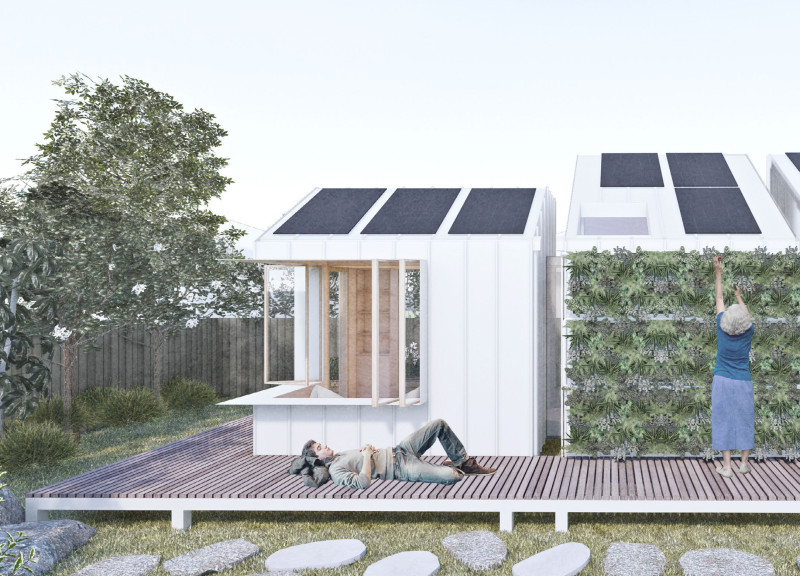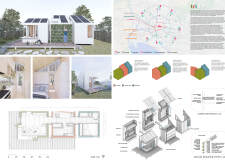5 key facts about this project
The architectural project "Tri.be" is situated in Melbourne, Australia, reflecting a modern residential solution that incorporates sustainability and modular design principles. This project represents a forward-thinking approach to urban living, addressing the essential need for adaptable housing while promoting community engagement and environmental responsibility.
The design integrates modular units that can be easily reconfigured to cater to the changing needs of residents. Each unit serves a specific function—housing various living spaces, kitchens, and private areas—thus optimizing floor space efficiency while maintaining comfort. The use of an open-plan layout in communal areas enhances interaction among residents, underscoring the project's emphasis on social connectivity.
Sustainability is a cornerstone of the design, characterized by the strategic use of renewable resources. The inclusion of photovoltaic roofing integrates solar energy production, contributing to the building's energy independence. Natural materials, such as timber for the facade and polycarbonate sheeting for roofing, create durable structures with low environmental impact. The installation of green wall systems not only provides insulation but also supports biodiversity, showcasing a commitment to ecological principles.
Unique Design Approaches
The "Tri.be" project distinguishes itself from conventional developments through its commitment to modular architecture. This adaptability allows for reconfiguration based on individual or familial needs, which is increasingly relevant in dynamic urban environments. Unlike static designs, these units are built for flexibility, enabling expansion or downsizing without the need for extensive renovations.
Emphasis on sustainability permeates the overall design philosophy. The incorporation of biophilic elements, such as green walls, enhances the aesthetic appeal while fostering environmental health. The project highlights a holistic approach to living; spaces are designed with nature in mind, promoting wellness and reducing resource consumption. The careful selection of materials ensures durability and minimizes the ecological footprint.
Impact on Community and Functionality
The layout and orientation of "Tri.be" prioritize accessibility and walkability. Positioned in proximity to public transport, educational institutions, and shopping areas, the project promotes a lifestyle that reduces reliance on vehicles. The architectural design encourages resource-sharing among residents, fostered by communal spaces that can serve as gathering points, promoting interaction and collaboration within the community.
The combination of innovative modular design and sustainable practices encapsulates the project's forward-thinking ethos. By addressing contemporary urban challenges, "Tri.be" presents a template for future residential developments that prioritize adaptability and ecological mindfulness. To gain deeper insights into the architectural plans, sections, and designs of "Tri.be," explore the project presentation for additional details.


















































